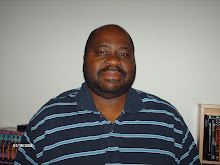Sorry for the long break. Between illness and life, it was tough to find the time to squeeze off a few thoughts here recently. I'll try to do better, including at least another posting today.
Here's my radio essay, which aired yesterday on Baltimore's WYPR-FM.
While a lot of the sports world’s attention zeroed in last week on the trials of a nine-year-old Connecticut boy to be allowed to pitch in a youth baseball league, something far more troubling was going on under the radar guns that measure the speed of little Jericho Scott’s fastball.
A major sports organization, the Ladies Professional Golf Association, has instituted a policy that turns the concept of multi-culturalism and tolerance on its very ear.
Effective next year, the LPGA will require its current players to speak English. Players who have been on the tour for two years will be suspended if they fail an oral evaluation of their English skills, while new players must adhere to the policy immediately.
Libba Galloway, an assistant LPGA commissioner, explained to the Associated Press that the new policy will assist players in their quote professional development unquote, that, quote We want to help our athletes as best we can succeed off the golf course as well as on it, unquote.
That will likely come as news to the 121 international players from 26 countries on the LPGA tour, who essentially were handed the following message: Speak good English or go home. And, you can save the indignant e-mails about my incorrect grammar. The previous sentence was for ironic effect.
And when you get right down to it, what the LPGA is doing is quite ironic. They’re telling a group of athletes, particularly the 45 or so players from South Korea who have come to have an important role on the tour, that their abilities and talents aren’t enough to succeed here.
Here’s the kicker, though. According to Golfweek magazine, which broke the story, the LPGA will not have a standard test, but rather will identify players to be evaluated through staff observations. Supposedly, players who already appear to be proficient in English won’t have to be evaluated.
Say what you want about baseball commissioner Bud Selig (and God knows, it has been said), but even he wouldn’t be so foolish as to take a tiptoe through the kind of garden of xenophobic tulips that the LPGA is planting. The agents of players of Cuban, Dominican, Puerto Rican, Venezuelan and Japanese origins would set Olympic records racing to courthouses to file class action suits if baseball tried the kind of stunt the LPGA is doing.
Frankly, the LPGA’s kind of thinking is antithetical to the way things really work in the good ole US of A these days. Look, all of us in the course of our everyday living encounter a person or persons who have come to this country to make a home and to find their dream. They may serve our food, clean our buildings or our clothes, or provide medical care to our children. Some of them even hit home runs or sink three-pointers.
However it happens, they have become essential pieces of the American mosaic. These LPGA players are part of that patchwork too, and should be evaluated on their abilities to strike holes-in-one, not rhetorical flourishes.
Subscribe to:
Post Comments (Atom)

1 comment:
I think that LPGA's decision smacks of xenophobia.
At least the Beijing Games appointed an Esperanto translator and CRI broadcast daily, about the Games, in the language.
Confirmation can be seen at http://esperanto.cri.cn
Post a Comment